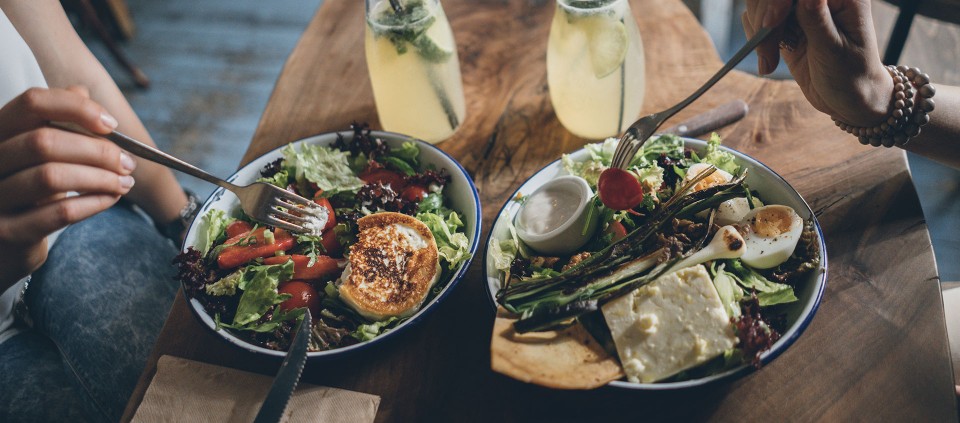Changing Your Relationship with Food

What if food was your friend, not the enemy? A source of nourishment and pleasure, rather than angst and self-loathing? For many women and girls, that’s hard to imagine.
Studies show that 81 percent of 10-year-old girls are afraid of being fat and 51 percent of 9- and 10-year-olds say they feel better on a diet, according to the National Eating Disorders Association.
Do you seek a healthy, happy relationship with food and your body? A long-term solution might require a new, counterintuitive approach.
Stop Punishing Yourself
A common mistake people make when trying to lose weight is attempting to create change through willpower and self-discipline. Unfortunately, that often results in a feeling of deprivation, which can trigger a response to eat more. Instead of cutting things out of your diet (“I will never eat sugar again”), start experimenting with a feeling of abundance by adding more veggies and fruits, says Kripalu Lead Nutritionist Annie B. Kay, MS, RD, RYT.
Kripalu presenter Geneen Roth suggests a more holistic approach to eating: “Start using your senses to land in your body. See what you’re looking at, hear what you’re listening to, feel your feet on the floor, feel your butt in the chair, tell yourself to breathe—many times a day. Come back into your body, come back into your home. Our bodies are vehicles for living, and we’re missing it.”
Can you start to let food into your life as a source of nourishment? Can you allow it to take on a meaningful role by sharing it with others? As your attitude shifts, so will your attachment to unhealthy habits.
Why It’s Not About the Food
Are you eating because you’re stressed, bored, or lacking other sources of pleasure? Or, are you avoiding food to gain a sense of control that you don’t feel in other areas of your life?
Either way, you need a clear understanding of what’s really going on. Practices such as yogic breathing, meditation, journaling, and mindfulness can help you bring clarity to the present moment.
These tools are crucial because poor eating habits are almost always unconscious—most people aren’t even aware of what they’re doing while they’re downing a pint of ice cream or a bag of chips. Being present to your patterns of eating can be both painful and liberating. But it’s not until you understand what you’re putting in your mouth, and why, that your relationship with food can truly transform.
Find out about The Kripalu Approach to Diet: An Integrative Weight-Loss Program.
© Kripalu Center for Yoga & Health. All rights reserved. To request permission to reprint, please e-mail editor@kripalu.org.